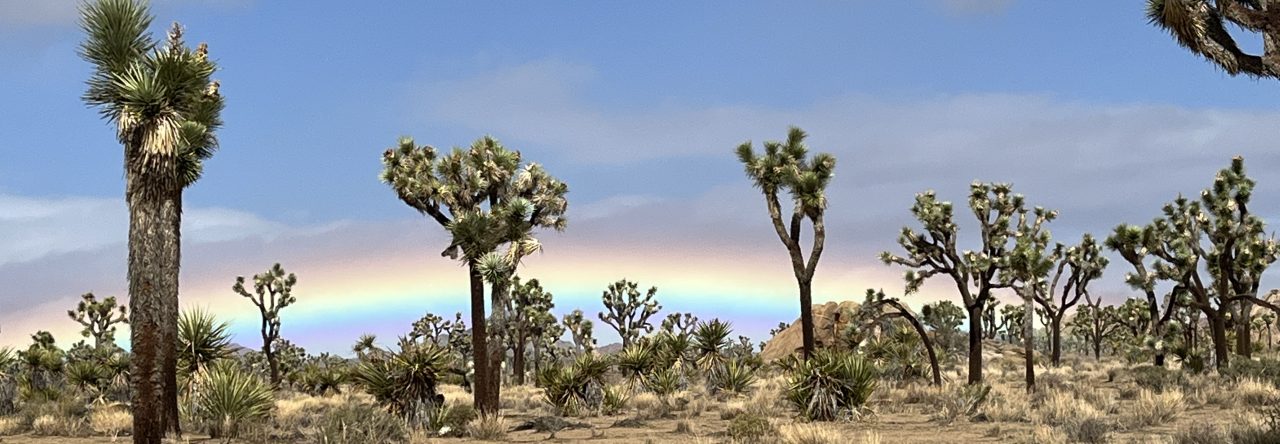After blogging for a long time, I have decided to post primarily on Substack. You can subscribe for free to my posts here.
Weekly shares (4/16/23) – More stuff I never learned in school
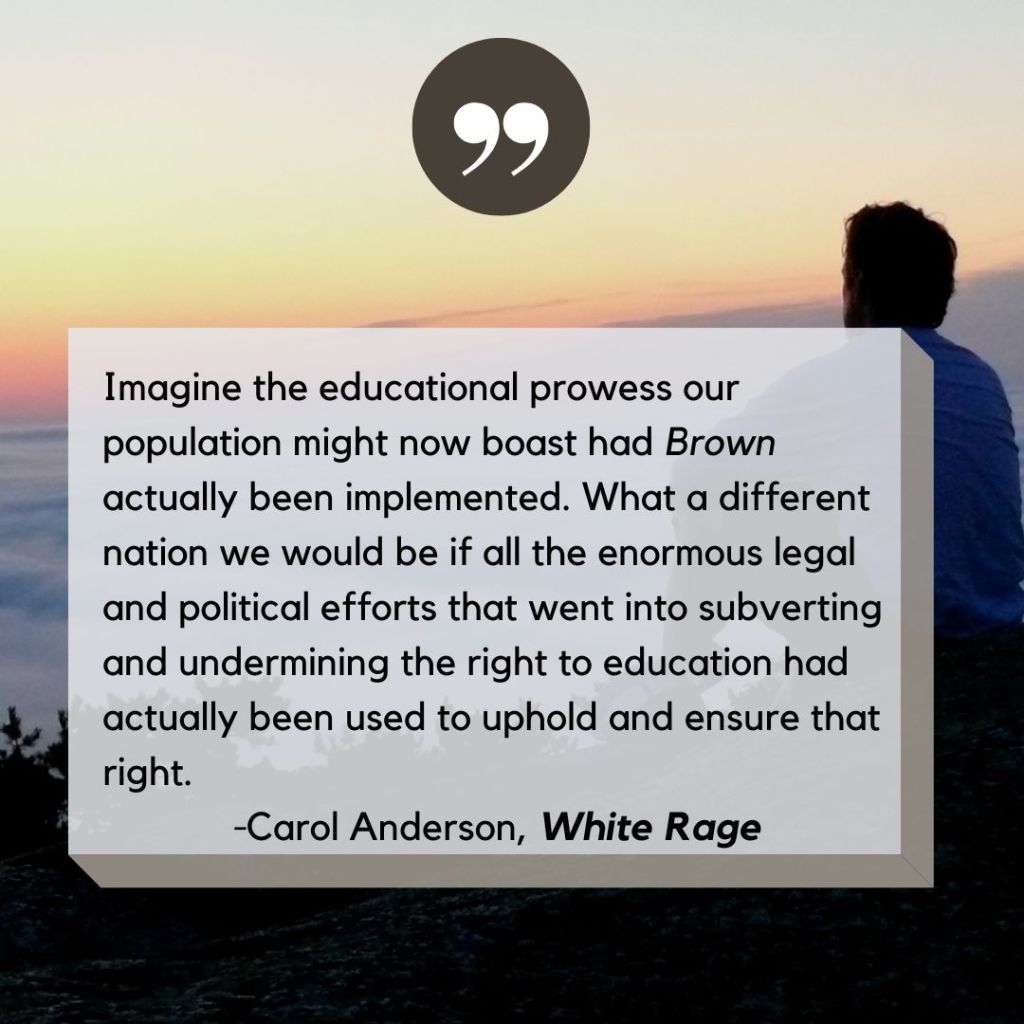
I added a new podcast to my rotation this week called American History Tellers. The show hooked me quickly with its focus on connecting our country’s past and our country’s present. The current season of the podcast is on The Cold War and during one of the episodes, there is a mention of President Eisenhower’s decision to send in federal troops to help desegregate Little Rock Central High School in 1957, three years after the passing of Brown v. Board of Education and three years after the school board had agreed to desegregate voluntarily.
The part of this that resonates most for me is the words of President Eisenhower in his speech to the nation before sending in the 101st Airborne to ensure that the law was followed and black students were allowed to attend Little Rock Central High School. Here’s a bit of the speech:
“In the South, as elsewhere, citizens are keenly aware of the tremendous disservice that has been done to the people of Arkansas in the eyes of the nation, and that has been done to the nation in the eyes of the world…Our enemies are gloating over this incident and using it everywhere to misrepresent our whole nation. We are portrayed as a violator of those standards of conduct which the peoples of the world united to proclaim in the Charter of the United Nations. There, they affirmed “faith in fundamental human rights” and “in the dignity and worth of the human person” and they did so “without distinction as to race, sex, language, or religion.”
Eisenhower ends with what he feels the outcome will be of his decision:
“…a blot upon the fair name and high honor of our nation in the world will be removed. Thus will be restored the image of America and of all its parts as one nation, indivisible, with liberty and justice for all.”
If you are interested in watching the entire speech by President Eisenhower from September 24, 1957, you can check it out here.
It’s interesting that the focus of the conclusion is more about “restoring an image” than calling for an end to the dehumanization of black citizens and the need for really working to put in place equitable structures. Maybe, like the Speaker of the House in Tennessee, the President just wanted a sense of decorum and was more upset that the fine people of Little Rock, Arkansas had caused a scene. Because the reality is that ignoring the mandate to segregate schools was much more the rule, rather than the exception.
As Carol Anderson points out in her chapter of White Rage titled Burning Brown to the Ground, there was a variety of tactics used to avoid the desegregation of schools. Places like Prince Edward County actually closed schools for four years (1959-1964) rather than comply with Brown. In Louisiana, the governor empowered state police to arrest any federal judge or U.S. marshal who tried to implement Brown. The truth of the matter was noted by Senator James O. Eastland of Mississippi who stated, “We will protect and maintain White Supremacy throughout eternity.” Mississippi Governor Fielding Wright added, “regardless of the consequences.”
Other things I am reading/watching/listening to:
The Tennessee GOP has a problem with democracy – The Boston Globe – One eye-popping excerpt from this article about the state that expelled two black members from its House of Representatives: “Recently it came to light that Tennessee had built up $732 million in funds for Temporary Assistance for Needy Families (TANF), which it largely refused to spend. Just this past fall, over three years since the discovery of the huge cash reserves, there was still some $632.9 million left unspent.”
Millions of Americans are losing access to maternal care. Here’s what can be done – A new term I learned this week is maternal healthcare desert. This article from NPR details a report that came out this past fall from the March of Dimes that highlighted “36% of counties nationwide — largely in the Midwest and South — constitute “maternity care deserts,” meaning they have no obstetric hospitals or birth centers and no obstetric providers.” Also, “One in 4 Native American babies, and 1 in 6 Black babies, were born in areas with limited or no access to maternity care services.”
WTF does race have to do with taxes? : Code Switch : NPR – From the show website: In this episode, we’re looking at the racial landmines in our tax code with Dorothy A. Brown, a tax expert and author of The Whiteness Of Wealth: How The Tax System Impoverishes Black Americans And How To Fix It. The show also highlights a study out of Stanford that highlights the fact that the IRS audits black taxpayers at higher rates than white taxpayers.
Lexington’s proposed zoning changes set the bar – This editorial from the Boston Globe highlights the vote last week in Lexington that opened the door for more affordable housing to be built in the community. Here’s an excerpt: “According to the Department of Housing and Community Development’s compliance guidelines, Lexington should rezone at least 50 acres in order to accommodate a minimum capacity of 1,231 multifamily housing units. What’s proposed before the Town Meeting subjects a total of 227 acres, dispersed throughout the town, to rezoning. For those who worry that may bring too much change to too many parts of town, the reality is that 227 acres only amount to 2 percent of Lexington’s total land area, as the town’s planners pointed out.” It will be interesting to see what other communities do to comply by the end of 2024 with this new state mandate for communities served by rapid transit.
Weekly Shares 4/9/23 – Tell Stories of Inequity

I started reading a new book by Gregory C. Hutchings, Jr. and Douglas S. Reed this week titled Getting Into Good Trouble At School: A Guide to Building an Antiracist School System. While I am just a third of the way through it, I found a number of excerpts strongly resonating with the prominent news surrounding the racist social media attacks on LSU’s star basketball player Angel Reese (a black woman) and the expulsion of Representative Justin Jones and Representative Justin Pearson (both Black men ) from the Tennessee House of Representatives for standing with constituents who were protesting for more gun control measures following the school shooting at the Covenant School in Nashville.
In both cases, there were white people participating in the same behavior who were treated differently.
In Angel Reese’s case, there was Caitlin Clark, the star player from Iowa who had given a similar hand gesture (see below) when her team won a game earlier in the NCAA Tournament, but faced no criticism. Reese was immediately vilified for her gesture as outlined by Jemele Hill in this article from The Atlantic.
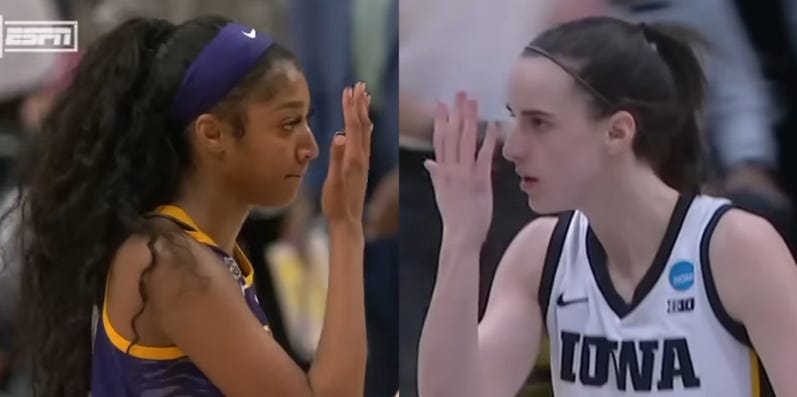
In the case of Representatives Jones and Pearson, who were voted to be expelled by their colleagues in the Tennessee House of Representatives to by votes of 72-25 and 69-26 respectively, there was a third State Representative who protested with them when the crowd advocating for greater gun control measures. She, however, was not expelled from the Tennessee House of Representatives. Her name is Gloria Johnson and when asked on CNN why she was not expelled like her black colleagues she said the following: “Well, I think it’s pretty clear. I’m a 60-year-old white woman and they are two young Black men. In listening to the questions, and the way they were questioned, and the way they were talked to. I was talked down to as a woman, mansplained to, but it was completely different from the questioning they got. And this whole idea that you have to almost assimilate into this body to be like us.”
A couple of excerpts from Getting Into Good Trouble at School that are closely connected to these two stories and so many other daily inequities faced by our fellow black citizens due to the prevalence of systemic racism in our country:
“The stories and histories we tell about ourselves, our communities…are not simply self-evident accounts of what happened in the past. They are also justifications of how things became the way they are..”
“Learning, knowing, and telling your history is empowering and enlightening, and it is the first step toward equity.”
“The value of stories told by (marginalized groups) is that they reveal how inequity is built and maintained.”
Other things I read this week that have me thinking
Allsides.com Coverage of the Expulsion of TN Representatives
Oh, White Fragility: Florida School Bans Ruby Bridges Film – by Aziah Siid on wordinblack.com
Oops, Your Denial of Systemic Racism Sorta Proves Systemic Racism – by Tim Wise on Medium.
School District Mission Statements Highlight a Partisan Divide Over Diversity, Equity and Inclusion in K-12 Education – by Meltem Odabas and Carolina Aragao at pewresearch.org
‘Thousands of Dollars for Something I Didn’t Do’ – The New York Times
Some things I heard/watched this week that have me thinking
Henry Turner on Listening and Empathy – from the Planning Period Podcast hosted by Newton North teacher Brad Shreffler
The Case of LaKeith Smith – From the episode website: “This episode of the Into America Podcast talks about the felony murder rule allowing a person to be charged with murder even if they’re not the one who did the killing. Experts say it’s a legal charge that disproportionately hurts young, Black, and brown men.”
Weekly Shares 4/2/23 – Making Connections
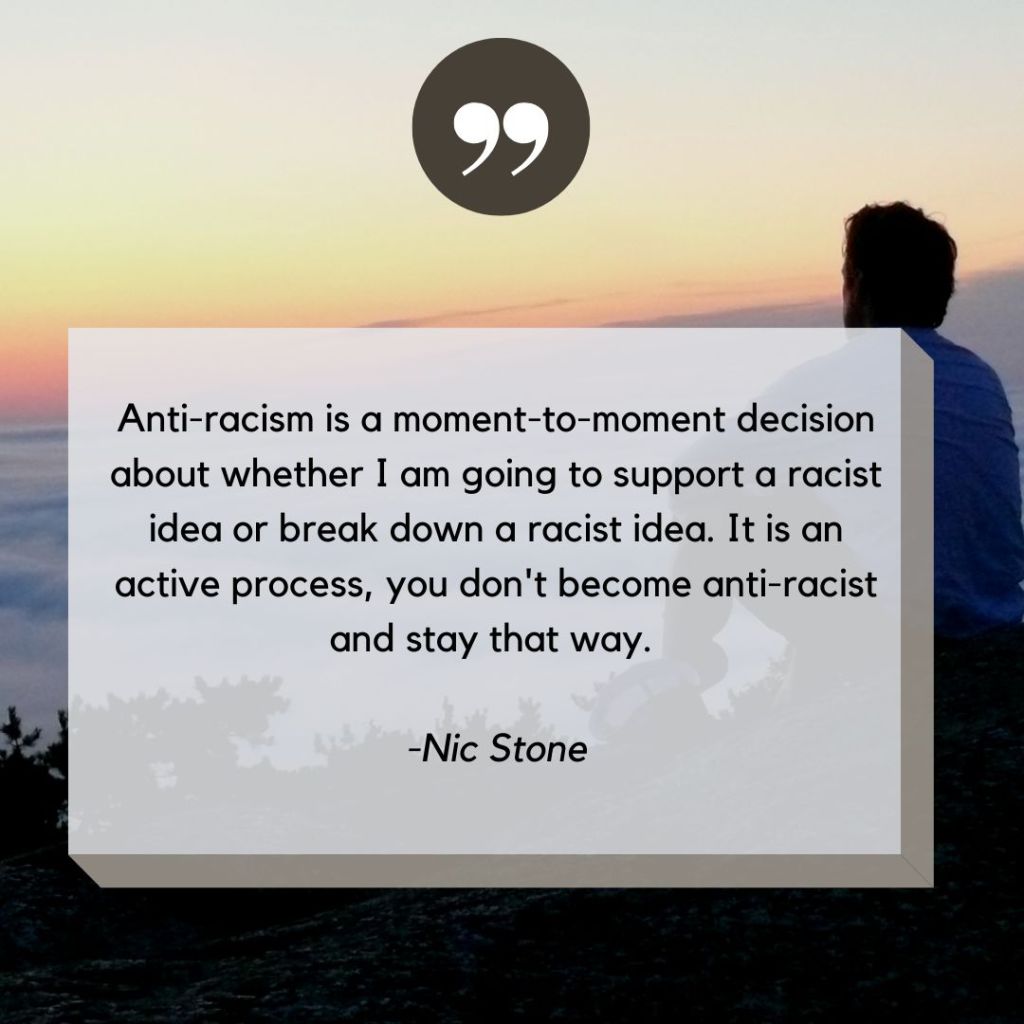
This was originally posted on my substack. You can subscribe here.
As we hit the end of the first quarter of 2023, I wanted to reflect briefly on my one word for the year, connection. As I outlined back in January my hopes in choosing this word were to focus on the following three areas for connections:
- Making connections with others
- Making connections with myself
- Making connections in my learning
Making connections with others
As 2023 has rolled on I have felt more disconnected than in recent memory due to the fact that I am not in a school district on a day-to-day basis. In order to fill this void, I have been reaching out to educators I know and scheduling time to talk about some of the work I have been doing during my sabbatical and to continue to discuss my next steps professionally.
Making connections with myself and my learning
The amount of reading and reflecting I have been able to do has allowed me to gain a great deal of perspective as to where I would like to be and the type of work I would like to be a part of.
Making connections in my learning
This weekly newsletter also serves accountability check. As I write edition 17 of My Un-Learning Journey, it is nice to be able to look back and see all of the reading, listening, and reflecting I have been able to undertake and compile articles, books, podcasts, and videos that will serve as resources in the future.
Some things I read this week that have me thinking
Sadly, some people chose to utilize the tragic school shooting in Nashville as an opportunity to spread misinformation about the trans community. It has never been more important to check the facts. The following articles/sites delve into this issue:
The data is clear: There is no ‘clear epidemic’ of transgender mass shooters – The Washington Post – From this article: “The Violence Project counts 188 mass public killings since 1966. So with 0.6 percent of the population, transgender people would expect to be involved in about one shooting. Nashville is the first case of a trans male or trans female perpetrator in the database.”
Nashville shooting exploited by right to escalate anti-trans rhetoric – This article, also from the Washington Post, highlights some of the misleading comments made by some members of the media and some elected officials.
‘No Way To Prevent This,’ Says Only Nation Where This Regularly Happens – It is sad when the satirical style of The Onion is just true.
Gun Violence Archive – The Gun Violence archive logs every gun death and it has done so since 2013. Just eye-popping numbers in regard to gun deaths of all kinds.
Here is a link to some articles from All Sides on the Parents’ Bill of Rights Act that was just passed by the House of Representatives. While I do not think anyone would argue that it is important for parents to have a voice in their children’s education, check out the statements from politicians on both sides of the aisle about what this bill would do if it were passed into law.
How to Be a (Young) Antiracist – This young adult version of Dr. Ibram Kendi’s How to Be an Antiracist was co-authored by New York Times Best-Selling author Nic Stone. The book, geared towards middle school-aged students and above would be a great book for a family to read together due to its clear definitions of terms and accessible language. The book chronicles Dr. Kendi’s learning journey from a young man moving forward and is broken into three parts: Inside: Facing Yourself, Outside: Facing the World, and Upside Down: Flipping the World Over. This parallels the same process that anyone looking to be antiracist needs to repeat. Stone highlights the importance of the “Four C’s of Changemaking: cogency, compassion, creativity, and collaboration.”
Some things I heard/watched this week that have me thinking
The Boston Globe hosted an interview with Nic Stone, co-author of How to Be a (Young) Antiracist a couple of weeks ago that you can see below. The question-and-answer format provides a lot of great tips for individuals interested in being anti-racist. One of my biggest takeaways was Stone’s advice for individuals to “start with respect and lead with questions.”
Into America Podcast – East Palestine disaster puts spotlight on ‘sacrifice zones’ – This episode talked about the well-known environmental issues caused by the toxic chemicals spilled in the train derailment in East Palestine, Ohio. The reason this disaster is so well known may have something to do with the fact that the population of East Palestine is over 96-percent white. Sadly, there are a number of other areas of the country like Institute, West Virginia environmental disasters are an ongoing issue impacting generations. The following is from the episode:
“For residents of so-called “sacrifice zones,” this kind of environmental disaster is everyday life. These communities, which are disproportionately Black, are close to industrial plants that emit carcinogens and other dangerous pollutants.”
You can read more about sacrifice zones here and here
Leading Equity Podcast: Why Black Music Should Be in Every Classroom – In this episode, Dr. Eakins discusses using music to enhance culturally responsive teaching with Franklin Willis. The show highlights the following:
- Teaching Black music to students
- Strategies for learning about music from students
- Considering the lyrics and content of hip hop
- Teaching music in core subjects
Bright Morning Podcast: Responding When Emotionally Activated – In this episode Elana Aguilar talks about the importance of understanding what gets us emotionally activated and how to respond when we find ourselves in these situations. As always, Elana also gives a lot of resources to reinforce the practice necessary to change patterns that may cause or increase harm.
Weekly Shares (3-26-23) – Some thoughts about SEL
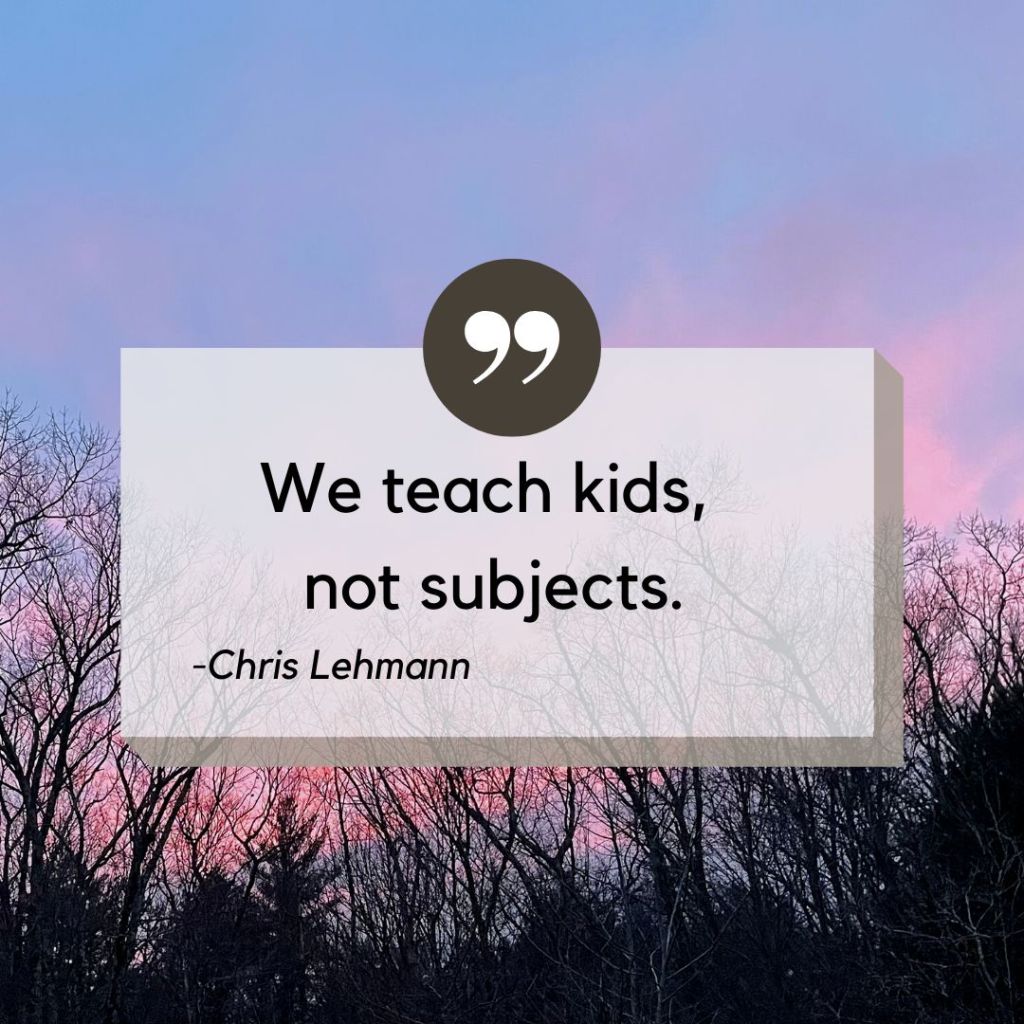
Last week’s post had a link to a VOX article on Social Emotional Learning (SEL) in schools and the attack on SEL by some conservative politicians. The fact of the matter is that this pushback against SEL has been coming from both Democrats and Republicans and it has been going on for the last couple of years as the Hechinger Report pointed out last year. A survey conducted by the Fordham Institute in 2021 was highlighted in an article titled How to Sell SEL: Parents and the Politics of Social-Emotional Learning and found the following from parents of both Democrats and Republicans:
“…schools should spend their time and money on academic catch-up, not on SEL…close to two-thirds of Republicans and more than half of Democrats said there is not enough time in the day to teach both academics and SEL.”
Interestingly, the work that many schools have undertaken over the last few decades to support the “whole child” is now being questioned when it’s called SEL, but the individual components of SEL work are hard to question you pull the apart and detach the acronym. The five social-emotional skills that are at the core of SEL work are self-awareness, self-management, social awareness, relationship skills, and responsible decision-making.
The Collaborative for Academic, Social, and Emotional Learning (CASEL) has a toolkit called Leading With SEL that summarizes the goals which you can download here. The guide highlights three core messages about SEL:
- Social and emotional learning improves academic achievement.
- Social and emotional learning builds lifelong, future-ready skills that allow children to pursue their hopes and dreams.
- Social and emotional learning is a critical layer of prevention for children’s mental wellness.
The research is clear about the improved academic outcomes in schools where SEL is prioritized. It is important that we continue to engage in conversations within our school communities that distinguish the facts about SEL work and how it leads to better outcomes for all students. In addition, as was touched upon last week, the importance of teaching students to ask questions like “who is doing what in the storyline and why?” has never been more important.
I couldn’t help but think of the quote from Chris Lehmann, the phenomenal leader of Science Leadership Academy in Philadelphia who discussed the key factors we need in order to have quality schools and led with the point that “we teach kids, not subjects.”
Some things I read this week that have me thinking
Julian Condie on Creating Innocent Classrooms – This ASCD article by Julian Condie highlights the work of Alexs Pate on creating a more Innocent Classroom for all students. The work of Pate is centered on three key concepts: 1. Innocence, 2. Guilt, and 3. Good.
The three key concepts are summarized as follows:
Guilt – the cumulative impact of negative stereotypes, negative narratives, negative iconography that end up impacting the attitudes and behaviors of a child, but also of the people in that relationship with that child.
Innocence – the opposite experience (of guilt), where a child is free of those narratives and experiences the freedom to just be.
Good – the journey of understanding the “good” in a child takes the shape of, What is that child asking for from their humanity, from other people in that relationship with them?
The article ends with a reminder for educators looking to do this work. “If you want to make sure you’re taking steps toward being an Innocent Classroom educator, know that you can’t walk away from any kid.”
How to tell if a film or TV Show is antiracist
From the Boston Globe’s Emancipator, this article by Dr. Phillipe Copeland, the lead for education and training at the Boston University Center for Antiracist Research, developed a test to see if stories about racism are antiracist. He outlined the following criteria:
- Racism is portrayed as a systemic issue and not just as blatant acts of discrimination, bigotry or hatred by White people.
- People of color are portrayed as fully human, not reduced to stereotypes or victims.
- White people are portrayed as working in solidarity with people of color, not just as villains or saviors
I am thinking this would be a good way to view our K-12 classroom libraries and/or curricula to ensure that we are offering an antiracist perspective for our students.
Equity Audits – Who’s Going to Check Them?
Also from the Boston Globe’s Emancipator, this article highlighted the dramatic increase in equity audits by organizations over the past few years. The authors feel that equity audits need to have some form of standardization to be truly effective and note that “no such methodology or tool exists.”
They make the assertion that “well-defined guiding principles can better position companies interested in promoting racial equity through audits” and outline the following guiding principles:
- Routine assessment by an external party
- Tailoring racial equity audits to meet needs and growth
- Using different methods to gather intel
- Analyzing information across functions
- Be transparent
Women across Iran are refusing to wear headscarves, in open defiance of the regime
An interesting read on the ongoing show of protest by many Iranian women who are no longer wearing their headscarves as a sign of protest against their authoritarian government. A quote from one woman has me pondering the right to bodily freedoms in this country that are being threatened and what could be next:
“I don’t want you to think that now that we don’t have the hijab, there is freedom,” said the 63-year-old woman who was walking with her daughter. “No, there isn’t freedom. This is just our way of showing our dissent. The government might try. But the society will not ever go back because we have suffered so much and we have become so brave.”
A little background on the controversy facing Tik Tok and discussions in Washington about whether this app could be banned from the United States. A short quote from the article:
“If most apps collect data, why is the U.S. government worried about TikTok? First, they worry about the Chinese government accessing data from its 150 million users in the U.S. There is also a concern about the algorithms used by TikTok to show content.”
Antisemitic incidents at an all-time high in Massachusetts and across the country
This article from WGBH highlights the Anti-Defamation League’s (ADL) report on anti-semitic incidents across the state and country over the past year and it is not surprising to see that we are in unprecedented times when it comes to antisemitic-related assaults, harassment and vandalism across the country. Also, Massachusetts ranked sixth in the nation in the number of such acts. There were 152 incidents fueled by hatred against Jewish people in 71 cities and towns across the state.
Some things I heard/watched this week that have me thinking
So you began your event with an Indigenous land acknowledgment. Now what?
This episode of NPR’s All Things Considered touched on the importance of Tribal Land Acknowledgements and ensuring that these are more than performative. As one guest on the episode noted on the topic:
“We’re just here for a brief time,” Dooley said. “And the way we can really honor our opportunity to live wherever we live is to acknowledge and honor the people that came before us.”
The Women Behind the Montgomery Bus Boycott : Code Switch : NPR
This episode of NPR’s Code Switch gave a first-hand account of the Montogomery, Alabama bus boycotts by sharing the voices and stories of the women behind this turning point in our country’s history.
Some of My Best Friends Are – The Jeffersons vs. Sanford & Son
This episode of this weekly podcast dove into two popular sitcoms from the 1970’s and talks about how the shows handled issues of race and class. There is also a discussion about how these shows would be received today… It was interesting to look back and hear clips from a couple of the episodes of these shows which I watched as re-runs in the late 70’s and early 80’s.
Friday Shares (3-17-23) – Teaching Children to Question…
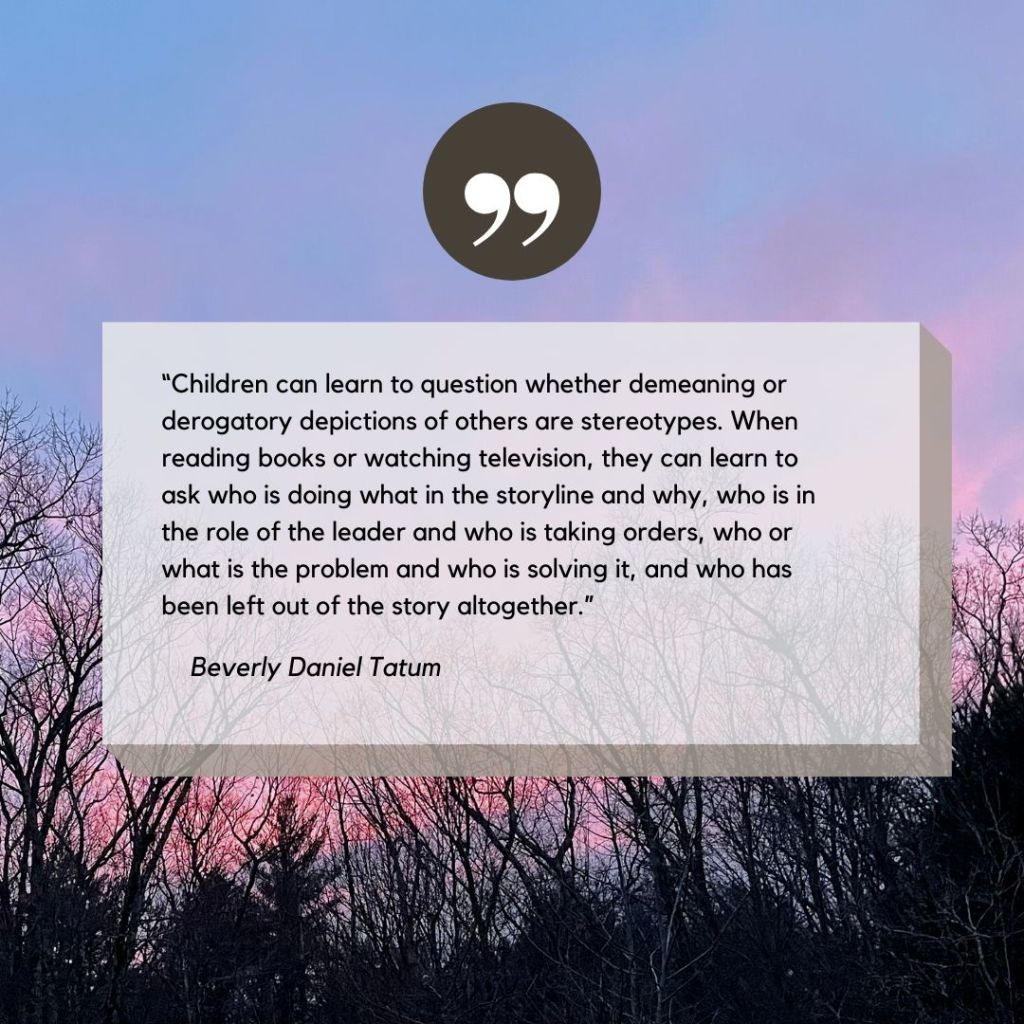
It was a busy week as I was fortunate to work with a few different organizations supporting their work around diversity, equity, inclusion, and belonging. With this, my volume of reading dipped a little bit. However, I did come across a post on LinkedIn from Dr. Sharla Horton-Williams that made me reflect a bit on the focus of the work that I have been fortunate to support with a number of educators from across the state of Massachusetts during the 2022-2023 school year. After leading a session titled The R Word: Skills and Strategies for Engaging in Healthy Dialogue About Race, Dr. Horton-Williams shared the following 3 big truths:
- We have race-specific outcomes in nearly every context of society.
- You can’t assign race-neutral solutions to race-specific problems.
- You can’t develop race-based solutions to race-specific problems without engaging in healthy dialogue about race.
Reading these truths reaffirmed the need to be explicit in this work, especially in times where there is growing fragility among many (white) people around terms like equity, SEL, and woke. It also reaffirmed the need to ensure that an accurate account of our country’s history is taught so that our students have a clear understanding of why there are disproportionate outcomes in every context of our society.
Beverly Daniel Tatum noted the following in Why Are All The Black Kids Sitting Together in the Cafeteria?:
“Children can learn to question whether demeaning or derogatory depictions of others are stereotypes. When reading books or watching television, they can learn to ask who is doing what in the storyline and why, who is in the role of the leader and who is taking orders, who or what is the problem and who is solving it, and who has been left out of the story altogether.”
If we are committed to actualizing mission statements and equity statements that highlight the importance of ALL students feeling a sense of belonging and equal access and opportunities to thrive academically, then this is the work that is entailed.
Some other things I read this week that have me thinking
4 questions to ask when committing to equity and anti-racism in schools – This article by Newton North Principal Henry Turner and Lainie Rowell is another great resource for educators who are looking to actively commit to anti-racism work in their schools.
Culture wars: Why social-emotional learning is under attack in public schools – Vox – From the article: “Social-emotional learning has long been accepted as part of curriculums across the country, from pre-K through high school. It’s backed by a large body of research and decades of practice.” Two initial questions: Why is this suddenly a target? Who is most impacted by the removal of these supports in our schools?
Some things I heard/watched this week that have me thinking
Stand – This documentary about former NBA player Mahmoud Abdul-Rauf was a look back at how Abdul-Rauf was ostracized for exercising his right to free speech. It definitely has some parallels to the Colin Kaepernick story. It is very powerful to hear the insights of some of Abdul-Rauf’s former teammates and peers looking back at this 20 years later. I remembered Chris Jackson’s amazing play from March Madness back in the late 80’s at LSU, but was unaware of his NBA journey and how it came to such a controversial end. Definitely, a must-watch!
Some of My Best Friends Are Podcast – Why We Love and Hate Hollywood – summary from the website: Khalil and Ben go to the movies with the perfect partner: Jacqueline Stewart, the director and president of the Academy Museum of Motion Pictures. They talk about how movies shape our lives, and why representation matters… on the big screen and at awards shows (Oscars still so white).
Into America Podcast – UPDATE: Into Injustice for Breonna Taylor – This episode highlights the findings from the Justice Department’s investigation of the Louisville Police Department.
Friday Shares (3-10-23) – Indoctrination or whitewashing?
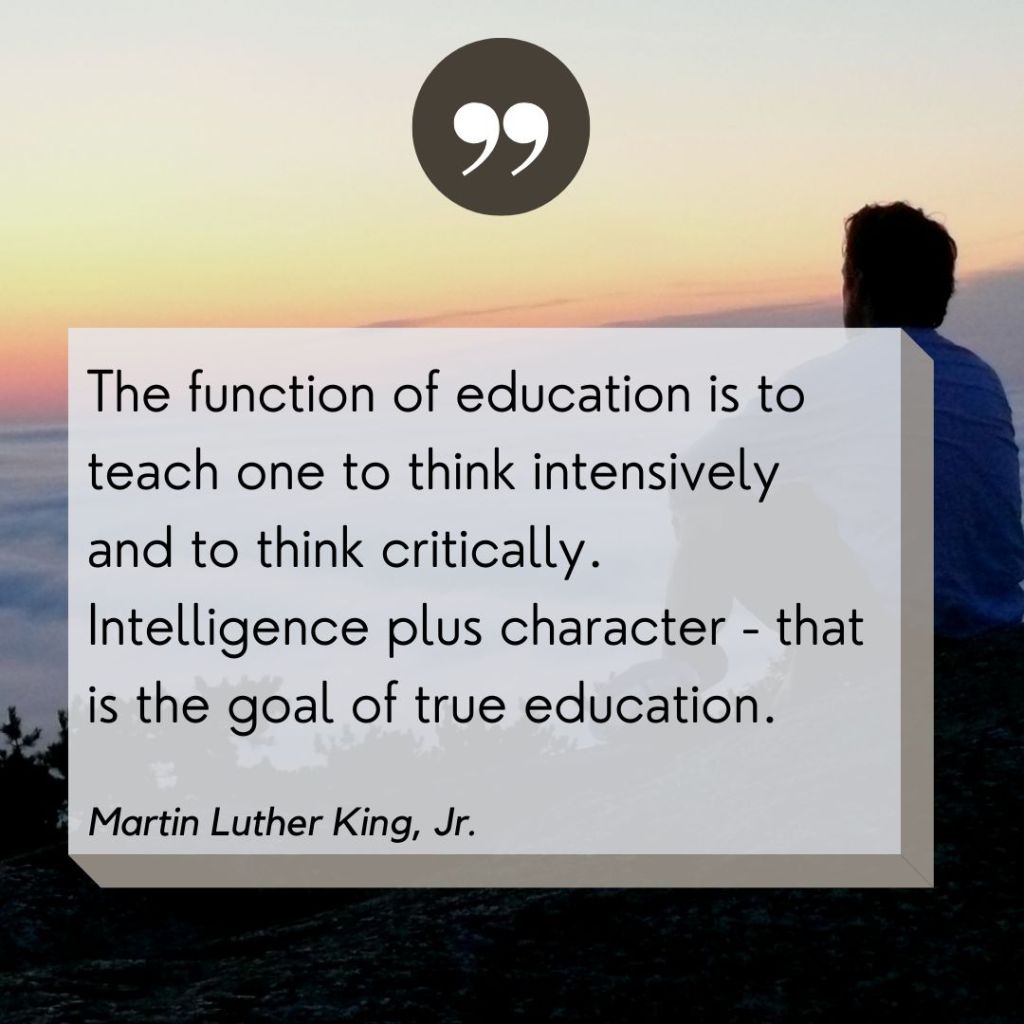
In the last few weeks, I have spent some time thinking about some of the words that have taken on a negative connotation for some Americans. Why has the meaning of the words Equity and Woke been changed in some circles to immediately infer negative intent on the part of someone who would invoke them? In addition, there are often concerns about indoctrination being tossed in with the negativity surrounding these words. These concerns have led to the whitewashing of AP African American Studies by the College Board, Book Bans in some classrooms and other measures that are being taken by those who espouse the theory that will prevent the indoctrination of students.
Just type indoctrination into your Google machine and click on news and see all of the stories you get about fears of indoctrination. It honestly made me look up the definition of indoctrination to make sure I was not missing something in this conversation. According to the Oxford Languages Dictionary, to indoctrinate someone means the following: “the process of teaching a person or group to accept a set of beliefs uncritically.” I cannot help wondering how denying portions of our country’s history and taking away so many books written by BIPOC and LGTBQ authors that allow all students to see representations of themselves (and for the majority of white students to learn about people and perspectives that are so unfamiliar to them) is not the epitome of indoctrination. Learning things about our country and the perspectives of our neighbors that we are unfamiliar with and having the opportunity to think critically about these things is a gift and provides a pathway to build understanding, connections, and empathy.
Not allowing this is divisive.
Some things I read this week that have me thinking
Abraham Lincoln Was Assassinated in the Name of White Supremacy | by Tim Wise | Jan, 2023 | Medium
Why Doesn’t America Have Universal Health Care? One Word: Race – The New York Times
Crazy rich autocracies: What are they doing better than democracies? – The Boston Globe
Understanding the intersectionality of hate
Florida Book Bans: Why Are Shelves Empty? – PEN America
Book Bans: Frequently Asked Questions – PEN America
US educational authorities must resist ‘anti-woke’ censorship
Some things I heard this week that have me thinking
How to Write the Past & Future with Clint Smith – This is from Some of My Best Friends Are… podcast with Khalil Gibran Muhammad and Ben Austen.
POD SAVE THE PEOPLE podcast – Come to the Present Day (with Nick Brooks) – As we finish the first full week of Women’s History Month, Kaya Henderson highlights 7 Things You Didn’t Know were Invented by Black women and DeRay Mckesson talks with author Nick Brooks about his new YA book Promise Boys, a book set a prestigious charter school in D.C. where the Principal is murdered and three boys of color, who are considered the primary suspects, need to find out who the murderer is to clear their names.
Friday Shares (3-3-23) – Equity added to the naughty list
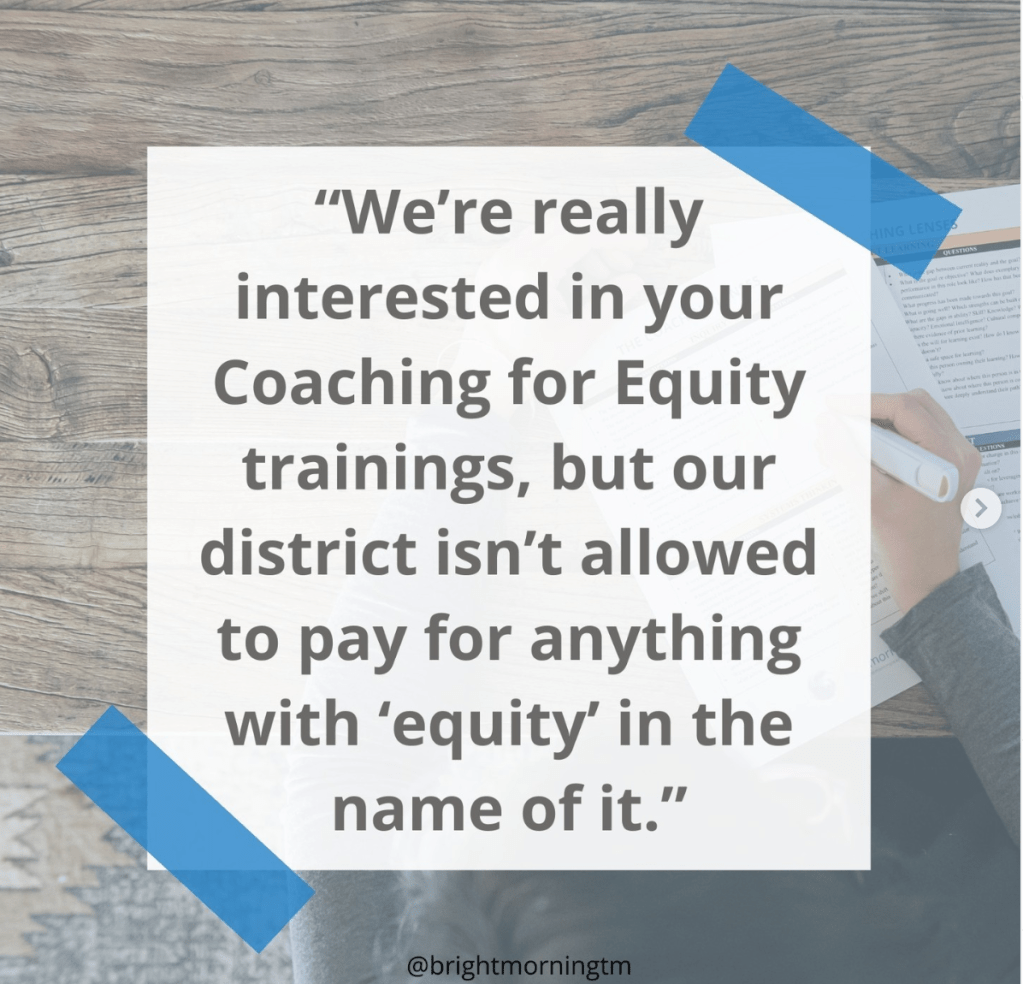
I caught this post from the Bright Morning Team’s Instagram account and was definitely taken aback by the fact that the word equity has been added to the “naughty list” in some school districts. This situation really isn’t much of a surprise after hearing multiple people explain that they equality to equity. Just a look at the definitions of the two words starts to paint a picture as to why we need equity before we can get to equality.
Per the Oxford Languages Dictionary, the term equality is defined as “the state of being equal, especially in status, rights, and opportunities.” Equity, on the other hand, is defined as “the quality of being fair and impartial.” From an educational standpoint, equity means each child receives what they need to develop to their full academic and social potential. This is a very common practice in many schools where students receive interventions for reading, math, or social-emotional learning to help them build fluency and skills where there may be gaps.
A couple of weeks ago, I discussed the word woke and the importance of looking at the history of the word and why its connotation is changing in some circles. It’s important to ask similar questions with the word equity. What has this word meant historically and why are we looking at it differently? It is hard not to imagine that if equity is something that is being pushed aside then those promoting this would prefer inequity because the fact is that if we cannot openly discuss equity then we are certainly not going to be undertaking actions that can start to tackle inequities.
The whole discussion on equity reminds me of an article from the Fall 2021 issue of Learning for Justice by Cory Collins titled THE CURB-CUT EFFECT AND CHAMPIONING EQUITY. The article highlights the activism in the early 1970’s that led to curb cuts being poured onto sidewalks and how it benefited both individuals in wheelchairs and many others. The article also discusses the efforts of activist and policy expert Angela Glover Blackwell who highlighted the curb-cut effect as a framework for understanding the community-wide benefits of any innovation specifically designed to achieve equity for an underserved group.
The fact that we are even entertaining thoughts about equity being a negative word also reminds me of the research of psychologist and author Jonathan Metzl from his book Dying of Whiteness. Metzl’s research shows concretely that “American human frailty is in part man-made, rendered all the more tenuous not by invasions of them, the immigrants or pathogens, but by political choices made by us, the white electorate.” He asks the following question in his conclusion: “What might American politics look like if white humility was seen not as a sellout or capitulation but as an honest effort to address seemingly intractable social issues?”
Circling back to the Bright Morning Team’s post, if you find yourself in a district that is suddenly skittish about using the word equity, the Bright Morning Team is offering scholarships for educators in these districts.
Speaking of terms many white people don’t want to hear, there was a lot to read about Systemic Inequities (dare I say racism) over the last week:
In 2022, Black farmers were persistently left behind from the USDA’s loan system
‘Rampant issues’: Black farmers are still left out at USDA – POLITICO
Fighting to Grow: Black farmers continue to battle systemic discrimination
Report: Black married couples face heavier tax penalties : NPR
Long prison sentences are cruel and ineffective: here’s the proof – The Boston Globe
A few other things I read this past week
#TeachTruth Syllabus – Zinn Education Project
Right-Wing Campaign to Block Teaching for Social Justice – Zinn Education Project
Dr. Seuss is a beloved icon who also drew some extremely racist stuff
The ‘Dilbert’ Cartoonist and the Durability of White-Flight Thinking – The New York Times
Lastly, one short video
Bryan Cranston on why Make America Great Again can be construed as racist
Friday Shares (2-24-23) – A look into the history of whiteness

As I was catching up on some episodes of NPR’s Throughline this week, I listened to the episode from February 9 which was titled The Whiteness Myth. The episode features the University of Virginia Professor Amanda Frost who details the history of whiteness in the United States as it pertains to the ability to become a legal citizen in her book You Are Not American: Citizenship Stripping From Dred Scott To The Dreamers.
The episode got me into a deeper dive into the history of whiteness. Below are just a few of the excerpts I found meaningful and a list of resources I found along the way.
Let me say it again: Whiteness has a history whose meanings change. Neither scholars nor ordinary people have been able to agree upon the definition of white people — who is white and who is not — nor on the number of races that count as white. Disagreement reigns and has reigned since the modern scientific notion of human races was invented in the 18th-century Enlightenment. Nota bene: invented in the 18th century. (Painter 2020)
What appears to have some people confused is the way anti-racists differentiate between white people, on the one hand, and whiteness as a social, political, and cultural idea, on the other…Whiteness is inherently oppressive and racist because the history of the concept has been intrinsically bound up with creating and maintaining a racial hierarchy. It has no history separate and apart from oppression. But the people called white are not the problem. In fact, the anti-racist position is that whiteness was something done to so-called white people, which those of us so-called should reject. (Wise 2021)
Resources:
- White identity in America is ideology, not biology. The history of ‘whiteness’ proves it. – Article by Nell Irvin Painter
- Author Examines ‘The History Of White People’ – NPR Interview with Nell Irvin Painter
- The Problem Isn’t White People — It’s Whiteness, People – Tim Wise
- Racism is a Product of Colonialism. But How Do We Dismantle It? – AMplified host Aisha Mills interview Tim Wise
- The invention of whiteness: the long history of a dangerous idea – Article by Robert Baird
- THE HISTORY OF WHITENESS AND HOW WE TEACH ABOUT RACE – Teaching Hard History Podcast interview with Dr. Aisha White from the University of Pittsburgh’s Positive Racial Identity Development in Early Education Program
- Historical Foundations of Race – From the Smithsonian’s National Museum of African American History and Culture
- Whiteness – From the Smithsonian’s National Museum of African American History and Culture
- Whiteness as property – By Professor Cheryl Harris in the Harvard Law Review
- How Can I Have a Positive Racial Identity? I’m White! – Ali Michael
Friday Shares (2-17-23) – Do You Prefer Being Awake or Asleep?
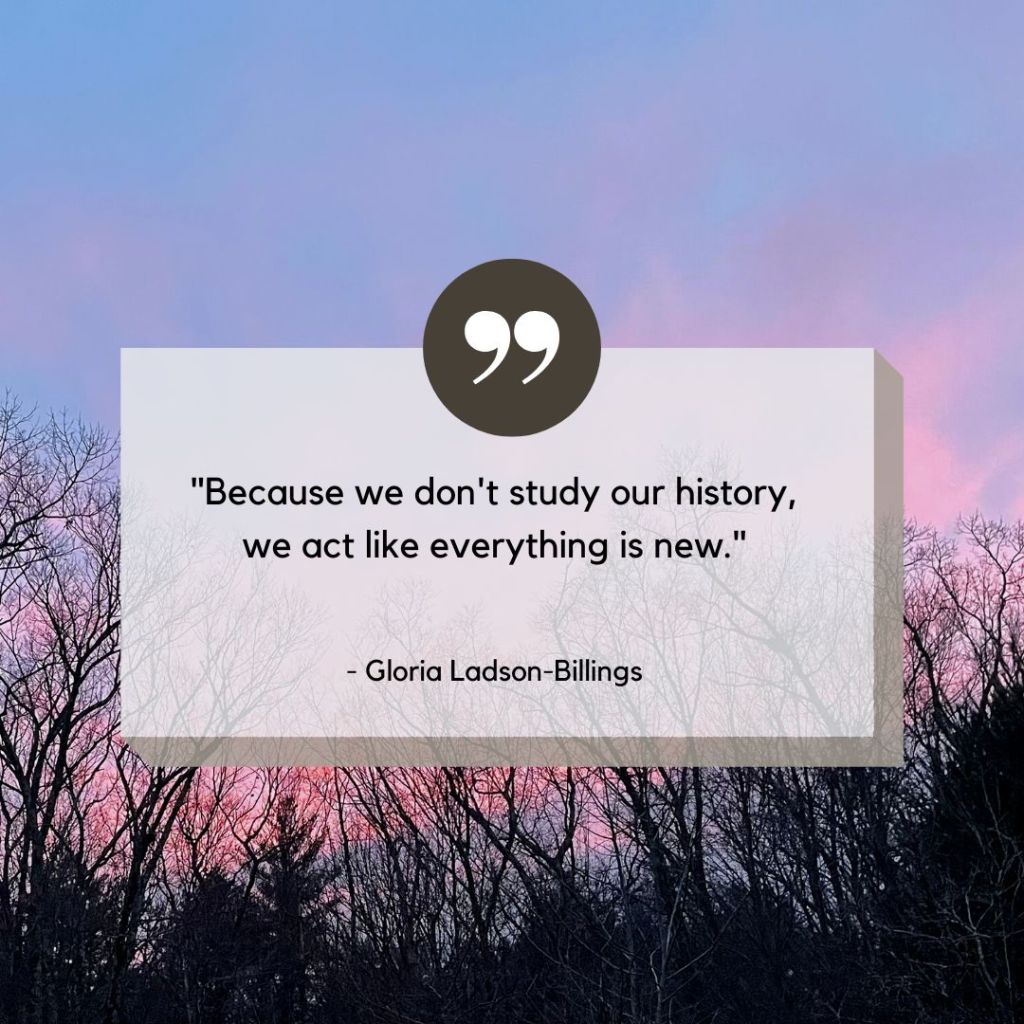
As we continue to see more news about states banning books and stopping access to teaching uncomfortable truths about our country’s past, it is even more important to do some homework to understand the throughlines that are present. As Dr. Gloria Ladson-Billings noted in her talk on Cultural Relevant Pedagogy and Primary Sources to the Minnesota Historical Society this past August, “Because we don’t study our history, we act like everything is new.”
With the Stop WOKE act in Florida, continuing to be a top news story after the College Board’s decision to white wash its African American Studies course curriculum, it seemed important to take a deeper dive into the origin of the word “woke.” What is the history of this word? Where did it originate? Why has the meaning become negative?
From a literal standpoint, it would seem that being awake would be a good thing as opposed to the alternative, staying asleep. This is where the quote from Dr. Ladson-Billings comes into play. Due to the lack of a commitment to discuss our country’s full history, there is an obliviousness to the explicit details of the story. Those who are in positions to make these decisions (mainly white men) remain unwilling to pursue a more accurate portrayal of how we as a nation have arrived at our current position. Could we avoid this ebb and flow of pushes to “reconstruct” our country to a place where all men and women are guaranteed the same rights?
Back to the history of the word woke, which according to an article from the NAACP’s Legal Defense Fund titled HOW WOKE WENT FROM “BLACK” TO “BAD” notes that the use of the word goes all the way back to the 1920’s, “the use of “woke” as an in-group signal urging Black people to be aware of the systems that harm and otherwise put us at a disadvantage is documented as far back as the 1920s.” Author Michael Harriot adds the following: “When you look at the long arc of history and America’s reaction to the request for Black liberation – every time Black people try to use a phrase or coin a phrase that symbolizes our desire for liberation, it will eventually become a cuss word to white people.” (i.e. Black Power, Black Lives Matter)
The post concludes with the following two paragraphs:
“It’s hard to get people to demonize human beings and lives and history. But it’s easy to get them to demonize a word. And if you can use that word as a placeholder for those people, for caring about those people, then it’s easy to demonize instead of saying, ‘We’re just gonna stop caring about people,’” Harriot concludes.
Okayplayer Senior News and Culture Reporter Elijah Watson agrees, “When I think of political figures like (Governor) DeSantis and the rampant fight against critical race theory — you are really trying to erase history and trying to erase knowledge that we need to grow better as a people. The fact that you are trying to hide these experiences all for the comfort of your white fragility is troubling, harmful, and, most importantly, dangerous. And that’s literally everything that woke goes against.”
Do those in control want to be better? Maybe a first question should be what does better looks like to you?
Recommended Read:
Who’s Afraid of History? – This essay from Dr. Henry Louis Gates Jr. weighs in on the importance of teaching the truth about our country’s history. Dr. Gates notes, “School is one of the first places where society as a whole begins to shape our sense of what it means to be an American. It is in our schools that we learn how to become citizens, that we encounter the first civics lessons that either reinforce or counter the myths and fables we gleaned at home.”
Lessons the Right Wing Does Not Want Taught – From Zinn Education Project, this page highlights three examples of lessons where students are able to explore U.S. History and develop a deeper understanding of our country’s past. The site encourages readers to “Judge for yourself: “indoctrination” or an exploration of U.S. history that helps students think for themselves and shape a more just future?”
The Forgotten History of Eugenics – This piece from rethinking schools asks provides some much needed background into the Eugenics movement in the United States. In addition it poses the following important questions: “What is the economic and political context in which the contemporary version of educational reform is being touted? What are the assumptions about student learning that fuel the current wave of testing? What are the effects of this testing on the lives of students and the educational climate of schools? How do these tests affect the equitable distribution of educational resources and opportunities between different school districts?”
Whiteness As Property – From the Harvard Law Review (1993) – “Professor Cheryl Harris examines how whiteness, initially constructed as a form of racial identity, evolved into a form of property, historically and presently acknowledged and protected in American law.”
Childbirth Is Deadlier for Black Families Even When They’re Rich, Expansive Study Finds –
This interactive page from the New York Times highlights the study, published last month by the National Bureau of Economic Research that highlights “The richest Black mothers and their babies are twice as likely to die as the richest white mothers and their babies.” The data shows that out of every 100,000 births, 173 of the babies born to the richest white mothers die before their first birthday as compared to 350 babies born to the poorest white mothers die, and 437 babies born to the richest Black mothers die. The data comes from a California study of 2 million births to new mothers between 2007 and 2016.
Recommended Watch/Listen:
Bill Russell: Legend – As a lifelong Celtics fan, I learned a lot from this two-part Netflix documentary about the racism Russell endured. It is interesting to me that I don’t remember a lot of talk about the fact that Russell was the first black NBA coach or that the Celtics were the first team to play five black players together at the same time. The documentary highlights that while Russell and his teammates were winning all those championships, the racism he and his family endured in his white suburban Massachusetts community was despicable. The film also shows the incredible Civil Rights work Russell did alongside Martin Luther King Jr., Muhammad Ali, and others. If you only know about Bill Russell’s incredible basketball resume, you don’t know Bill Russell. Check out the trailer below:
Democracy-ish – This week’s episode featured Carol Anderson, best-selling author and Professor of African American Studies at Emory University. Check out this clip from the Democracy-ish YouTube channel and the entire episode here.
